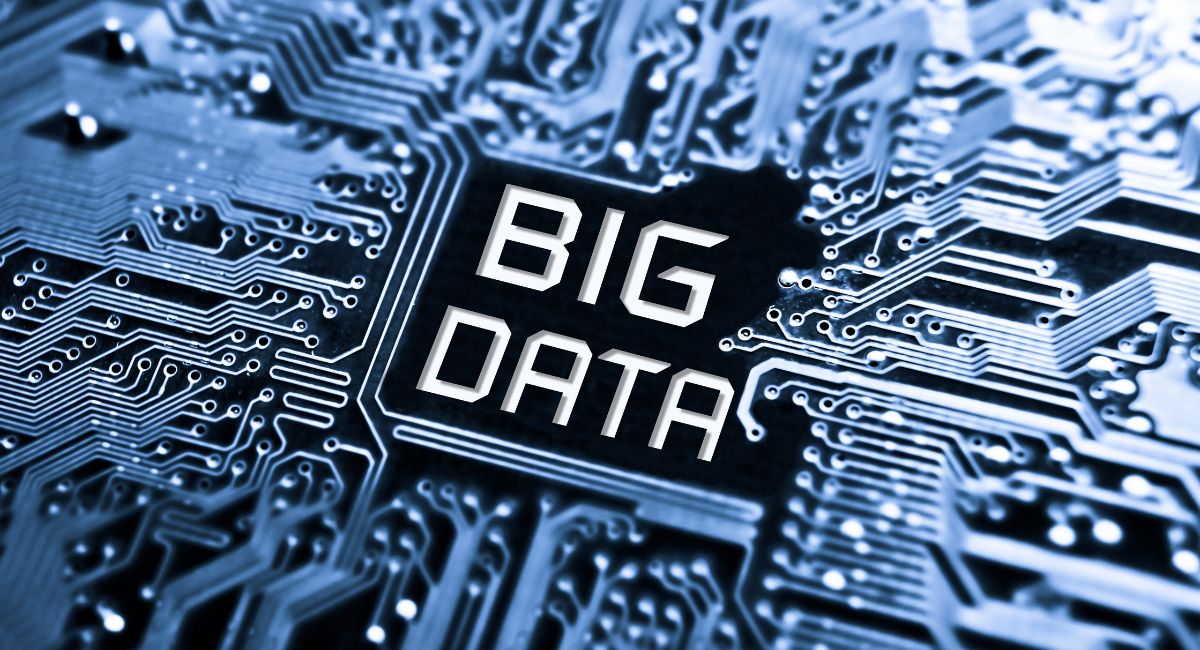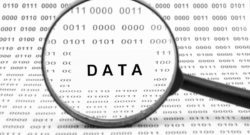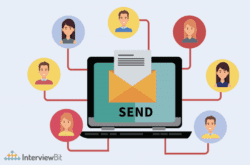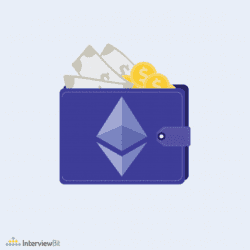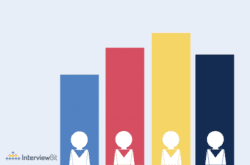The Blockchain Revolution: Unveiling the Top 5 Blockchain Projects Related To Big Data
The digital age has given birth to an abundance of data, transforming industries and driving innovation. Amid this data boom, blockchain technology has emerged as a disruptive force, reshaping the way we handle, secure, and manage data. From financial transactions to supply chains and beyond, blockchain projects potential to revolutionize data management is undeniable. In this article, we delve into the top 10 reasons why blockchain projects are poised to lead the data world, especially in the context of its popularity in big data projects.
1. Immutable Data Integrity
At the core of blockchain lies its ability to ensure data immutability. Once information is recorded on the blockchain, it cannot be altered or tampered with, ensuring the integrity of data—a crucial aspect of data-driven decision-making.
2. Enhanced Security
Blockchain employs cryptographic techniques to secure data, making it resistant to unauthorized access and tampering. This enhanced security addresses the concerns surrounding data breaches and cyberattacks, offering a reliable solution for protecting sensitive information.
3. Decentralization and Data Ownership
Blockchain’s decentralized nature means data isn’t stored in a single, vulnerable location. Data ownership and control are distributed among participants, empowering individuals and businesses to manage their own data without relying on intermediaries.
4. Transparency and Auditability
Every transaction recorded on a blockchain is transparent and traceable. This transparency is particularly valuable in sectors like supply chain management and financial services, enabling efficient tracking and auditing of data.
5. Interoperability
Blockchain’s ability to operate across different systems and platforms is essential in a data-driven world where diverse technologies coexist. This interoperability streamlines data sharing and communication between different stakeholders.
6. Smart Contracts for Automation
Smart contracts are self-executing contracts with predefined rules. They automate processes, reducing the need for intermediaries and ensuring accurate, timely execution of actions based on data triggers.
7. Data Monetization and Ownership
Blockchain facilitates new models for data monetization. Users can grant permission to access their data in exchange for compensation, giving individuals greater control over their data and its value.
8. Improved Data Quality
Blockchain’s decentralized validation mechanisms enhance data accuracy and quality. This is especially important in big data projects where reliable and accurate data forms the foundation of meaningful insights.
9. Enhanced Data Sharing and Collaboration
Traditional data sharing involves complex negotiations and intermediaries. Blockchain simplifies this process by allowing secure, direct data sharing, fostering collaboration while preserving data privacy.
10. Trust in Data Exchange
Blockchain’s transparent and secure nature builds trust among participants in data exchanges. This trust factor encourages data sharing and collaboration between organizations, leading to a more interconnected and data-rich world.
Also, read – The Top 10 Blockchain Projects To Watch In 2023
Exploring 5 Blockchain Project Ideas with Learning Resources
For those venturing into the world of blockchain technology, embarking on hands-on projects is an excellent way to solidify your understanding. Here are five beginner-friendly blockchain project ideas that will not only sharpen your skills but also provide the building blocks for more complex endeavors. Keep in mind that these projects are designed for educational purposes, offering valuable learning experiences without the pressure of building a portfolio.
1. Project: Hello, World!
The simplest project is often the most foundational. Start by creating a basic smart contract that returns the string “Hello, World!” This seemingly straightforward endeavor will introduce you to essential aspects of blockchain projects. You’ll learn about the structure of a solidity file, contract declaration, function definition, and other fundamental concepts.
2. Project: Simple Storage
Build a smart contract for simple storage, wherein you can define an integer variable that can be both read and updated. Develop functions that increment and decrement the variable’s value. This project advances your understanding by allowing data modification in a smart contract, which can later serve as a basis for more intricate functionalities.
3. Project: Multi-Send
Create a blockchain application that facilitates the sending of ethers to multiple Ethereum addresses. This can be especially useful for applications like distributing salaries to employees. Utilize REMIX IDE, an online platform for solidity-based smart contract development. Employ an array of addresses as a function argument and use a loop to execute the transaction. This project will solidify your grasp of loops, arrays, and transaction execution.
4. Project: Ether Wallet
Construct an ether wallet—a basic smart contract that can receive and transfer ethers. While such wallets might not have immediate practical use, they serve as invaluable learning tools. Through this project, you’ll delve into the mechanics of manipulating and transferring ether within a smart contract. Additionally, you’ll explore access control mechanisms to prevent unauthorized access to funds.
5. Project: Polling System Required Knowledge: Solidity, Ethereum
Dive into a slightly more complex endeavor by creating a polling smart contract. In this system, users can initiate polls, add choices, and vote for their preferred option. The smart contract will need to manage voting periods and tally the results to determine the winner. This project will introduce you to more intricate concepts, including working with addresses, advanced data structures like hashmaps, and incorporating time functionality in solidity.
Embarking on these beginner-friendly blockchain projects provides a solid foundation for grasping the intricacies of blockchain technology. Each project offers unique learning opportunities, gradually building your skills in smart contract development, data manipulation, and transaction execution. Remember that these projects are stepping stones, designed to empower you with the knowledge and confidence to tackle more advanced blockchain initiatives in the future. Whether you’re a newcomer or a seasoned enthusiast, these projects stand as testament to the versatility and educational power of blockchain technology.
Conclusion
As we navigate an era where data is both a valuable asset and a significant challenge, blockchain emerges as the beacon of data revolution. Its ability to provide immutable data integrity, enhanced security, decentralization, and transparency positions it as the ultimate solution for leading the data world. In the realm of big data projects, blockchain’s popularity is undeniable. Its transformative impact on data management is not just a trend; it’s a fundamental shift that promises to reshape industries and redefine the way we perceive, utilize, and protect data. The blockchain revolution is well underway, poised to lead us into a new era of data-driven possibilities.
Stay informed with daily updates from Blockchain Magazine on Google News. Click here to follow us and mark as favorite: [Blockchain Magazine on Google News].
Get Blockchain Insights In Inbox
Stay ahead of the curve with expert analysis and market updates.
latest from tech
Disclaimer: Any post shared by a third-party agency are sponsored and Blockchain Magazine has no views on any such posts. The views and opinions expressed in this post are those of the clients and do not necessarily reflect the official policy or position of Blockchain Magazine. The information provided in this post is for informational purposes only and should not be considered as financial, investment, or professional advice. Blockchain Magazine does not endorse or promote any specific products, services, or companies mentioned in this posts. Readers are encouraged to conduct their own research and consult with a qualified professional before making any financial decisions.

 Bitcoin
Bitcoin  Ethereum
Ethereum  Tether
Tether  XRP
XRP  Solana
Solana  Dogecoin
Dogecoin  USDC
USDC  Lido Staked Ether
Lido Staked Ether  Cardano
Cardano  TRON
TRON  Avalanche
Avalanche  Toncoin
Toncoin  Wrapped stETH
Wrapped stETH  Chainlink
Chainlink  Wrapped Bitcoin
Wrapped Bitcoin  Shiba Inu
Shiba Inu  Sui
Sui  Hedera
Hedera  Polkadot
Polkadot  WETH
WETH  Stellar
Stellar  Hyperliquid
Hyperliquid  Bitcoin Cash
Bitcoin Cash  LEO Token
LEO Token  Uniswap
Uniswap  Pepe
Pepe  Litecoin
Litecoin  Wrapped eETH
Wrapped eETH  Ethena USDe
Ethena USDe  NEAR Protocol
NEAR Protocol  USDS
USDS  Aptos
Aptos  Internet Computer
Internet Computer  Aave
Aave  Mantle
Mantle  POL (ex-MATIC)
POL (ex-MATIC)  Cronos
Cronos  Ethereum Classic
Ethereum Classic  WhiteBIT Coin
WhiteBIT Coin  Render
Render  Virtuals Protocol
Virtuals Protocol  Monero
Monero  MANTRA
MANTRA  Dai
Dai  Artificial Superintelligence Alliance
Artificial Superintelligence Alliance  Bittensor
Bittensor  Arbitrum
Arbitrum 